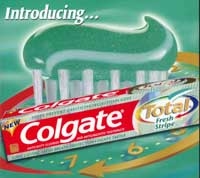 Poor eating habits and an unbalanced diet can significantly harm your body without you even realizing it. Here are five signs that indicate you may be eating incorrectly.
Poor eating habits and an unbalanced diet can significantly harm your body without you even realizing it. Here are five signs that indicate you may be eating incorrectly.
Fatigue
From general tiredness to complete exhaustion, these are common signs that reflect poor eating habits. This can stem from various causes: lack of calcium, insufficient sugar, or salt. To regain your energy, simply balance your diet and ensure you have a nutritious breakfast. Carbohydrates are also a vital source of fuel for your body, providing energy for muscles and are essential for your nervous system and brain.
Insomnia
Difficulty sleeping, waking up at midnight… Sleep can be affected by your diet. Consuming too much protein (meat, fish) can delay sleep. Similarly, coffee, tea, or sugary sodas can disrupt sleep patterns. An ideal dinner should be light and consumed at least two hours before bedtime. Prioritize eating plenty of vegetables (salads, steamed vegetables) and starchy foods (which act as sedatives). For dessert, consider eating fruits.
Hair Loss
|
Proteins, lipids, and carbohydrates are essential nutrients for life. Minerals and antioxidants are crucial for our bodies to function properly. On the long journey towards an ideal diet, we should not underestimate the impact of an imbalanced nutrition state. It not only affects individual health but also the quality of an entire generation. |
Proteins are necessary for renewing tissues (hair, skin, nails…). A deficiency in protein depletes reserves and adversely affects the condition of hair, skin, nails, and mucous membranes. Protein intake should be distributed across three meals a day. The most complete sources of protein are animal-based: meat, fish, and dairy. A lack of vitamins A (carrots, dark green vegetables, apricots), B vitamins (grains, fish, yogurt, eggs), vitamin E (dried fruits, oils, wheat germ), and zinc (oysters, poultry, grains, and oil-rich fruits) can also contribute to hair loss.
Constipation
Frequent constipation (three times a week) is often due to an unbalanced diet lacking fiber. The remedy is simple: eat more high-fiber foods, grains, and products made from grains, along with fruits and vegetables. Bloating and gas can be alleviated by regularly consuming dried beans and green vegetables…
Kidney Stones
Excessive intake of calcium-rich foods, especially when combined with long-term vitamin D treatment, can lead to the accumulation of calcium crystals and the formation of kidney stones. If blocked, these stones can cause severe abdominal pain and negatively affect kidney function. The body’s necessary water intake is between 2 to 2.5 liters daily. Without enough water, urine becomes more concentrated, leading to a buildup of waste.


















































